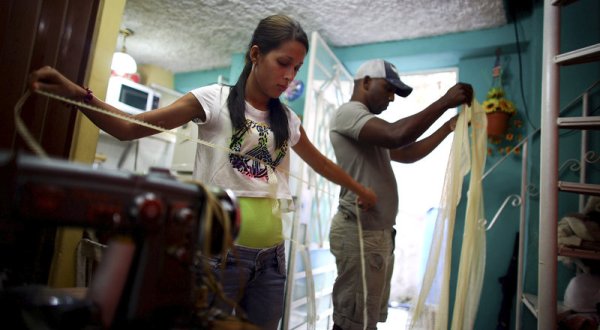Fidel Castro’s death probably will have little impact on the domestic Cuban economy and its invigoration by a new wave of small business owners and self-employed professionals.
Under Castro, who called business owners a “class of parasites,” the Cuban government abolished private property ownership and property exchanges and controlled all production and all employment.
But in 2011, significant reforms legalized small businesses and increased their presence in the Cuban economy.
Today under-stocked, government-run retail stores still attract long lines of under-served Cubans. But state-owned stores operate along with a new generation of small-scale entrepreneurs who sell such goods as fresh produce and such services as manicures and haircuts.
Castro’s younger brother Raul, 85, who succeeded him in 2008 as president of Cuba, has supported legal reforms that authorized self-employment in hundreds of professions and trade between small businesses and the state. In his pragmatic approach to the Cuban presidency, Raul Castro also has started to reduce taxes on entrepreneurs and has permitted private exchanges of homes and vehicles.
The reforms have encouraged a surge in the number of self-employed Cubans from 148,000 in 2009 to 500,000 in late 2015.
In the wake of his brother’s death, Raul Castro may expand the business-friendly reforms of the Cuban economy. And though he plans to step down as president in 2018, his handpicked successor, Miguel Diaz-Canel, probably will pursue similar economic policies. [The Daily Telegraph] — Mike Seemuth
